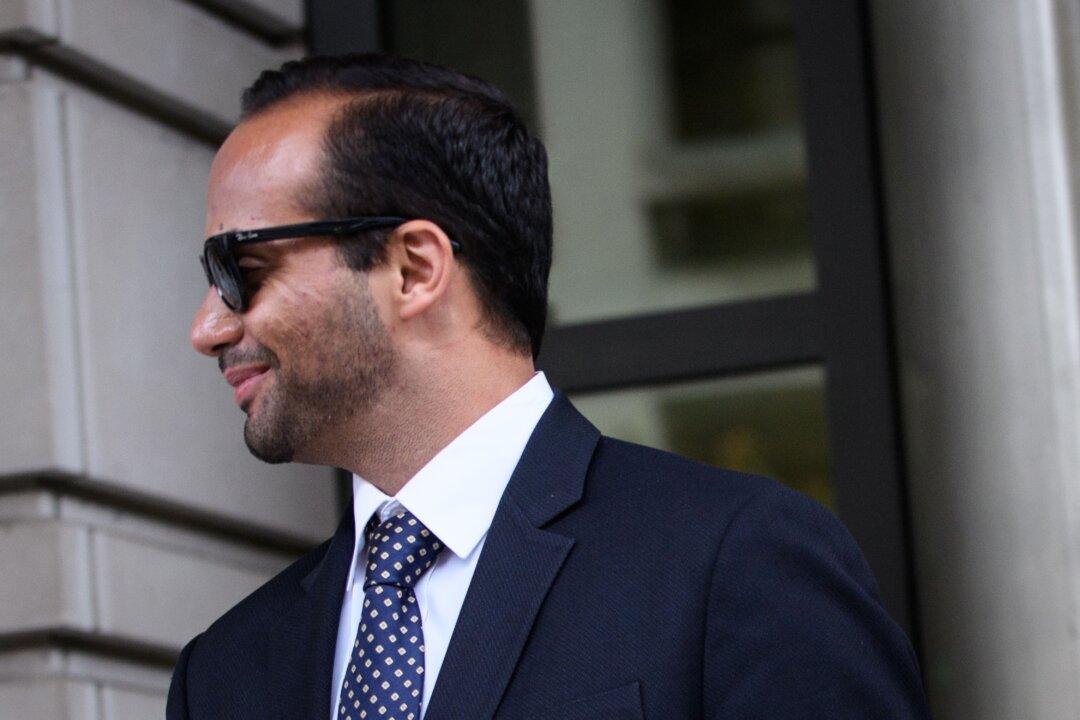A federal judge denied two motions to delay the prison sentence of George Papadopoulos on Nov. 25, scuttling an 11th-hour attempt to pin the former Trump campaign volunteer’s fate to a decision in a separate case concerning the legality of the appointment of special counsel Robert Mueller.
U.S. District Judge Randolph Moss issued the ruling (pdf) one day before Papadopoulos was scheduled to surrender to prison authorities to serve a 14-day sentence for lying to the FBI.





